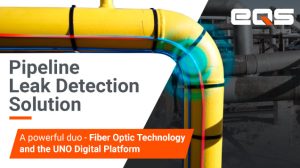Work Equipment
EQS Global guarantees the compliance of Work Equipment with all applicable safety requirements, developing the following activities:
● Checks after installation or installation in a new place, before starting or restarting, if the safety of the work equipment depends on the conditions of its installation;
● Periodic Checks and, if necessary, Periodic Tests on work equipment subject to influences that may lead to risky deterioration;
● Extraordinary checks of work equipment when exceptional events occur, such as changes, accidents, natural phenomena or prolonged periods of non-use, which may have serious consequences for their safety.
● Design and structural analysis – Technical compliance assessment, structural safety verification and development of engineering solutions.
EQS Global is a Certified Inspection Company, and accredited Non-Destructive Testing laboratory, offering a full range of services dedicated to inspection, and the necessary knowledge to support its clients throughout the assets’ lifecycle.
EQS Global is also a LEEA – Lifting Equipment Engineers Association – certified company.
Equipment inspected includes:
- Tower & Mobile Cranes
- Bridge & Gantry Cranes
- Maritime Cranes
- Offshore Lifting Equipment
- Non-fixed Load Lifting Attachments
- Equipment for Lifting Persons
- Scaffolding Systems & Form Travelers
- Concrete & Bituminous Plants
- Drilling & Foundations Equipment
- Tunneling Machinery
- Extractive Industry Equipment
- Wind Farms Equipment
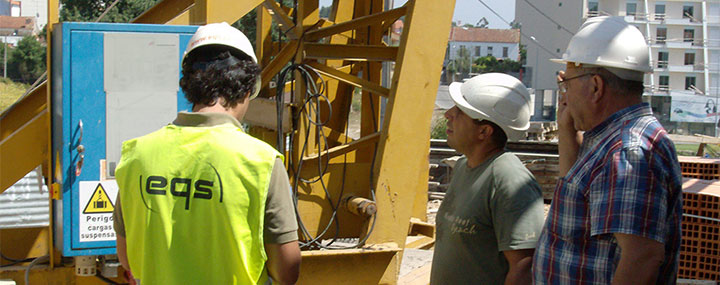
Tower & Mobile Cranes
Cranes are the pillars for any major construction project. Used on a daily basis, most of the related accidents occur due to safety issues and material mishandling. For this reason, it is important to carry out regular safety inspections, as they provide a means of detecting potential hazards, preventing failures. Besides this, these procedures are used to ensure the equipment’s safety and reliability, and compliance with all statutory requirements.
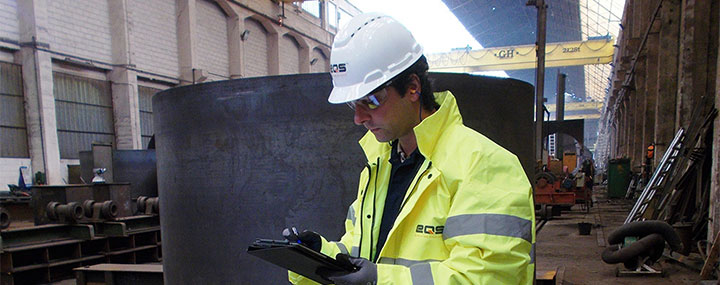
Bridge & Gantry Cranes
The main risk while using lifting equipment usually relates to mechanical or electrical failures, that can result in incidents with severe consequences. The owner and the lifting equipment’s operator must, therefore, ensure that the asset is subject to frequent inspections and that it is working in accordance with the laws and regulations in force.
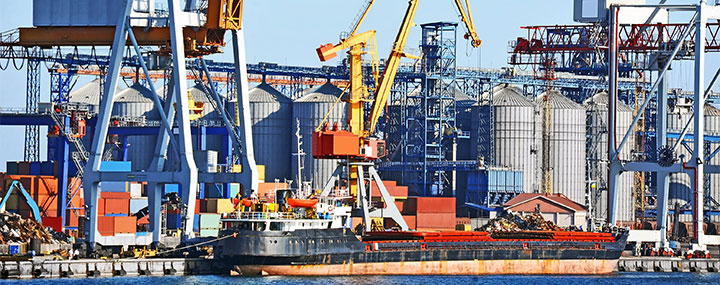
Maritime Cranes
Safety, reliability, and compliance with legal requirements are essential to the operation of lifting equipment since the simplest flaws can leave deep marks, such as serious injuries or even deaths during the assets’ operation. In addition, costs of interrupted operations can be high. Thus, it is important to know the need and to perform regular and certified maintenance, ensuring the functioning of the equipment at the best possible level.
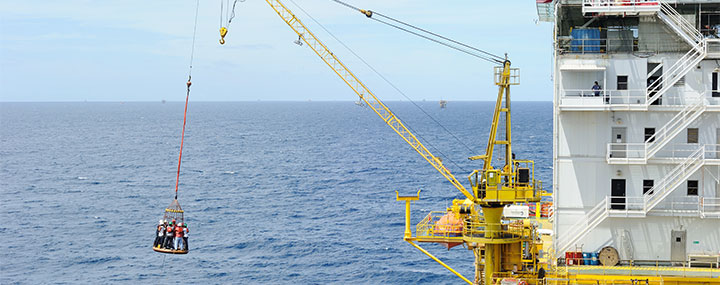
Offshore Lifting Equipment
The offshore sector presents significant challenges to the owners. The remote and harsh environment, the atmospheric conditions, the sea influence create obstacles to the assets’ durability and safety. As these are decisive factors for the structures’ performance, it is essential to ensure continued performance and high levels of productivity.
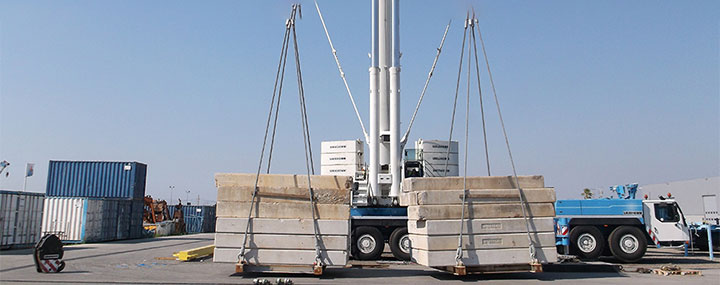
Non-fixed Load Lifting Attachments
Non-fixed Load Lifting attachments can be fitted directly or indirectly to the hook or any other coupling device of a crane, hoist or manually controlled manipulating device by the user without affecting the integrity of the crane, hoist or manually controlled manipulating device.
There are significant hazardous situations and hazardous events that could result in risks to persons during normal use and foreseeable misuse. Inspection activities aim to reduce risks associated with those hazards.
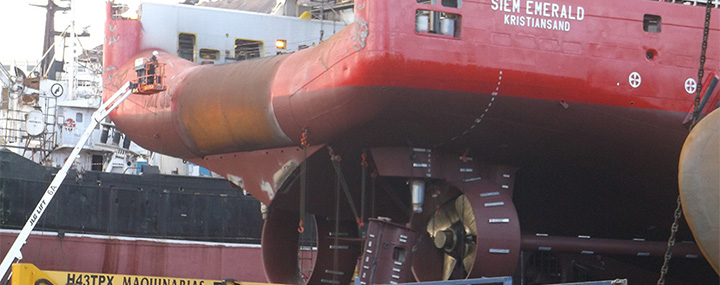
Equipment for Lifting Persons
Despite the strict control required, continuous operation of the lifting equipment can lead to accidents and frequent breakdowns. It is, therefore, essential to make sure both the safety of users and the correct operation and compliance with legal requirements.
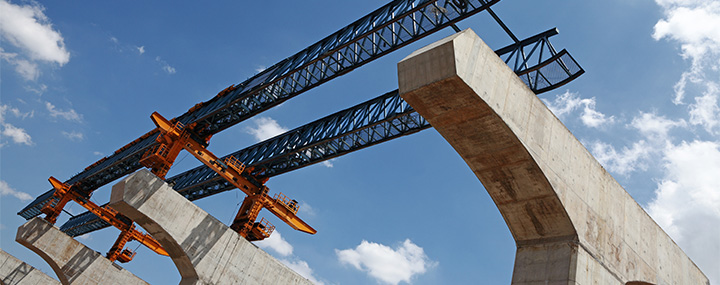
Scaffolding Systems & Form Travelers
Movable Scaffolding Systems and Form travelers are instruments mainly used in construction. These have associated advantages in terms of time and cost savings. Tight deadlines, the need for minimizing risks associated with the construction, the limited lifting capacity of some sites, and reduced environmental impact are the main reasons that suggest the use of these materials as a more lucrative alternative.
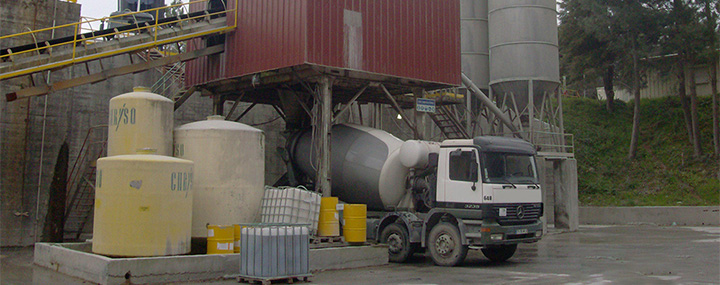
Concrete & Bituminous Plants
Being subjected to an intense effort, lifting equipment of Concrete and Bituminous Plants are used mainly to lift precast concrete products.
As this is a high-risk procedure, trying to avoid accidents and to provide greater security for workers in contact with high-risk equipment, using control methodologies, and conducting equipment’s periodic inspections are essential procedures.
Aiming to ensure the operating conditions and the reliability of equipment, EQS’s inspectors perform a thorough evaluation of the lifting equipment, including non-destructive testing, ensuring the safety and structural integrity of the materials.
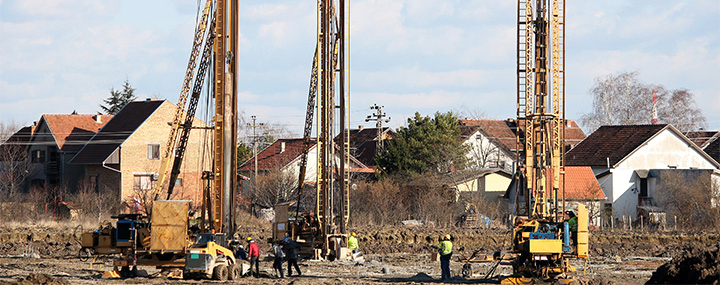
Drilling & Foundations Equipment
The Drilling and Foundations activity has always been associated with mechanical and human aspects. As this type of project carries high risks for the workers, the working conditions, safety rules, and equipment’s integrity constitute important factors.
Thus, to prevent the occurrence of accidents, and so that the safety and security measures are effective, it is necessary in order to assure the machine’s compliance with the related standards and regulations.
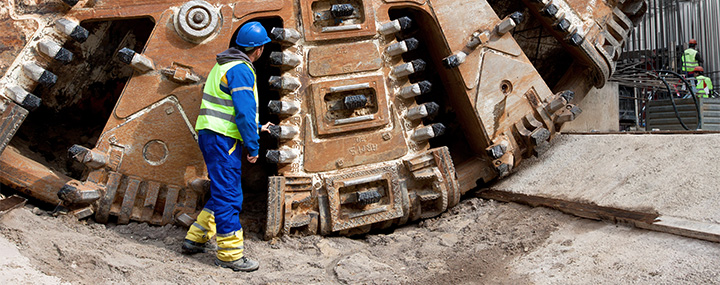
Tunneling Machinery
The construction of tunnels has always been associated with the human aspects. As this type of project carries high risks for the workers, the working conditions, safety rules, and equipment’s integrity constitute important factors.
Thus, to prevent the occurrence of accidents, and so that the safety and security measures are effective, it is necessary in order to assure the machine’s compliance with the related legislation.
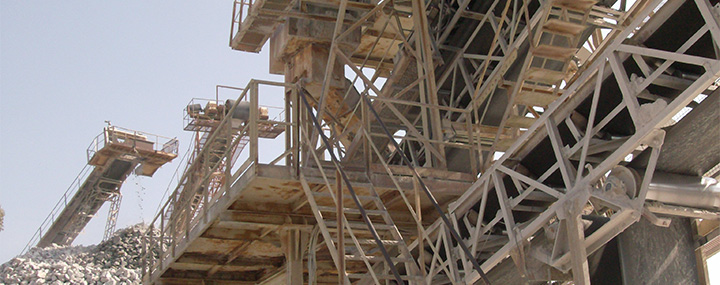
Extractive Industry Equipment
Comparatively to other sectors of activity, the extractive industry presents a higher risk of fatal accidents during the use of machinery. Natural deterioration, human failures or the operation of instruments that do not comply with safety requirements can cause, in addition to accidents, increased costs associated with repairs, among other aspects.
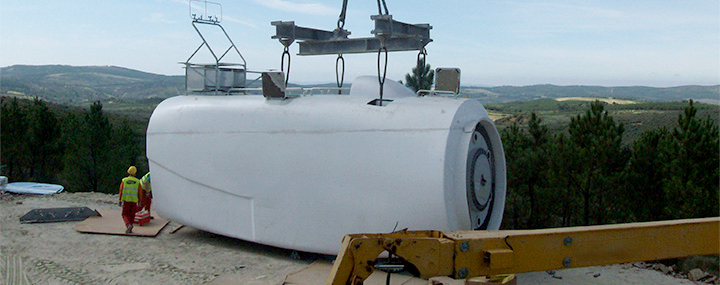
Wind Farms Equipment
Construction and maintenance of wind farms require the use of heavy lifting equipment. The safety of this equipment must, therefore, be assured as well as compliance with all standards and legal requirements.
Request a Quotation


